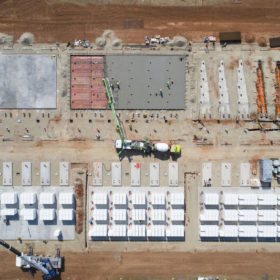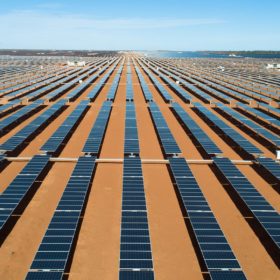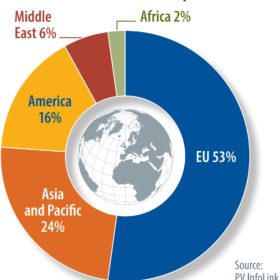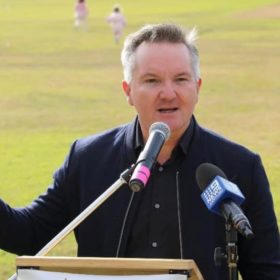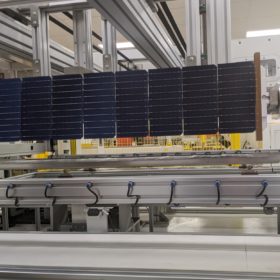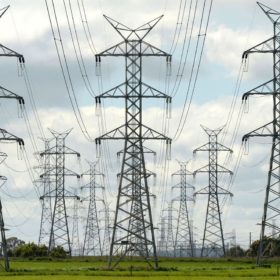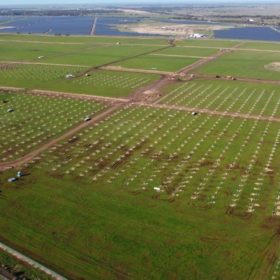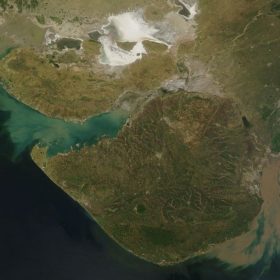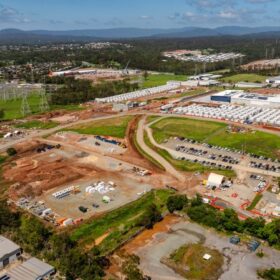ACT charges ahead with Canberra’s 250 MW big battery project
The Australian Capital Territory government has firmed its commitment to deliver one of the largest battery storage systems in the Southern Hemisphere to support Canberra’s energy grid and the continued uptake of renewables with funding allocated in the upcoming budget to progress the Big Canberra Battery project.
Enel looks to sell major stake in Australian wind, solar portfolio
Italian utilities giant Enel Group is reportedly looking to sell a substantial share in its Australian renewable energy platform, Enel Green Power, to help fund an estimated 3.6 GW development pipeline in the country.
India will have 125 GWh of lithium batteries ready for recycling by 2030
India will see a cumulative demand for around 600 GWh of lithium-ion batteries from 2021 to 2030 across all segments. The recycling volume coming from the deployment of these batteries will be 125 GWh by 2030.
Weekend read: Global module demand to hit 240 GW in 2022
Despite polysilicon shortage-induced high module prices, the market saw strong demand in the usually slower summer season this year, due to the global race to net-zero emissions. Corrine Lin, chief analyst at PV InfoLink, expects demand to reach 240 GW, with China and Europe set to contribute more than 80 GW and 50 GW, respectively. Together with the United States, which has paused the introduction of new solar tariffs, the three largest markets will dominate nearly 70% of global demand.
Bowen discards planned changes to ARENA mandate
The Federal Government has moved to scrap controversial changes to the Australian Renewable Energy Agency’s mandate that allowed it to fund some fossil-fuel related and carbon capture storage technologies, signing regulations which make it clear the agency will focus on renewables and electrification.
ESB drives discussion on integration of EV smart charging
The Energy Security Board has declared the impending electrification of Australia’s transport fleet has the potential to revolutionise the way consumers receive and use energy and has issued a call for input on how best to support the effective integration of smart charging for electric vehicles into the National Electricity Market.
Behind-the-scenes look at solar panel production shines light on Australian manufacturing
With the International Energy Agency leading calls to diversify the world’s solar PV supply chain, Australia’s only solar panel maker Tindo Solar has released a video following the manufacturing process at its new $11 million production facility in Adelaide.
NSW announces tender round for large-scale wind, solar and storage
New South Wales has reached another milestone in its transition from coal-fired power generation to renewables-based electricity with the state government announcing the start date for a tender process expected to deliver at least 2,500 GWh of new annual generation and 600 MW of long-duration storage.
128.5 MW solar hybrid plant reaches financial close in South Australia
Vena Energy Australia has reached financial close on the second stage of its Tailem Bend 2 Hybrid Project thanks to a PPA with Zen Energy and green financial support from DBS, ING, and Siemens. The 128.5 MW project will comprise 87 MW of solar with 41.5 MW of battery energy storage.
Indian state of Gujarat tenders 1.5 GW of solar
Solar developers have until Aug. 23 to bid for the rights to build up to 1.5 GW of grid-connected solar projects under 25-year power purchase agreements.
